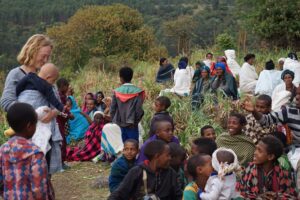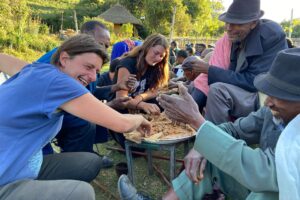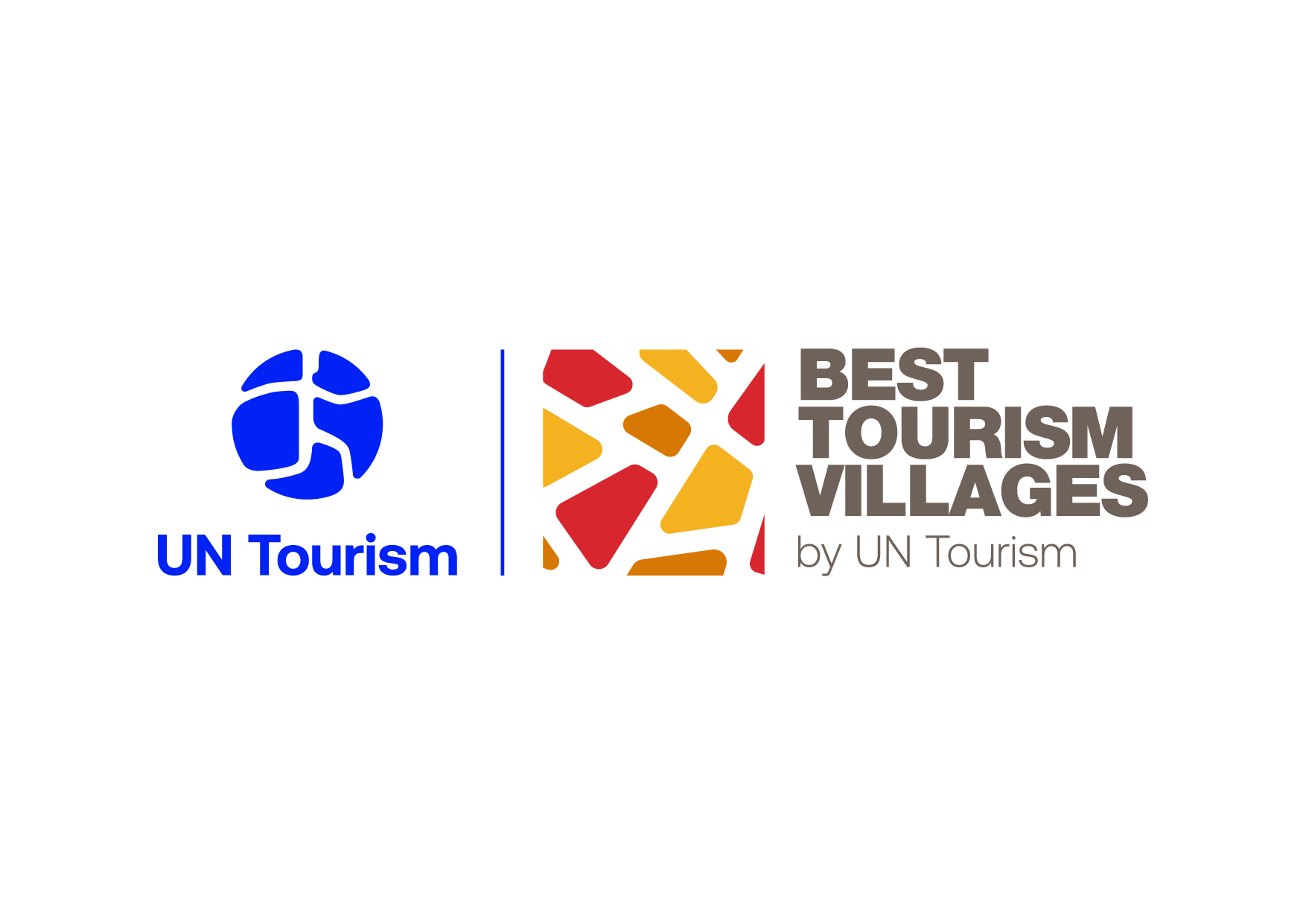An ecotourism ideology
Choke Mountain is the third highest mountain in Ethiopia, located 300 km northwest of the capital, Addis Ababa.
This ecotourism village has developed sustainable land management and is promoting solar energy, biogas and waste management.
The local farming community in this village lives in harmony by adapting the ideology of Mulu ecovillage which promotes fair trade tourism, sustainable tourism development, sustainable culture and nature conservation. Additionally, the village aims to establish a strong community-based tourism approach by coordinating and hosting regular community events.
The village people have the knowledge and equipment to produce a range of natural goods including honey, beer, medicinal herbs, vegetables, coffee etc. for the locals, tourism providers, and visitors.
HIGHLIGHTS
-

Community- based tourism
The village encourages the local inhabitants to take an active part in adopting a sustainable lifestyle. It has promoted the ideology of Mulu Eco-Village by using local materials to transform the common land into multiple tourism sites. The local inhabitants have shown a keen interest in hosting regular community events. They act as tour guides and operate lodges whilst cultivating and producing a range of goods derived from both animal and plant sources including honey, beer, medical herbs, vegetables, and coffee.
-

Association of Genete - Natural resources conservation and ecotourism
The village has established an association to oversee how tourism practices are developed and implemented in the region. The Association of Genete emphasizes the importance of harmonizing the conservation of the ecosystem and biodiversity by promoting sustainable ecosystem services. The association also encourages SMEs to empower the rural people by offering employment opportunities and has introduced sustainable ecosystem payment services.
-

Climate change resilience
The commitment and actions of the village in working towards a sustainable future are clearly visible. They actively utilize modern technology including solar panels for food and drink production purposes. Additionally, a plant nursery is used not only for growing but to maintain the “green” image of the village whilst biogas development and waste management have also been undertaken.

